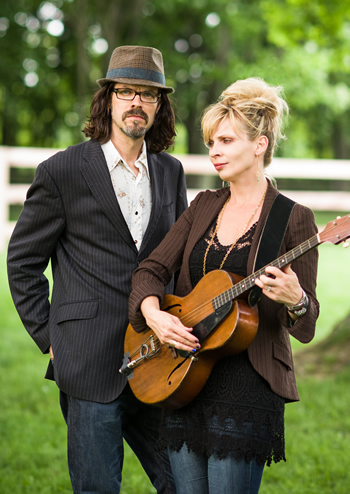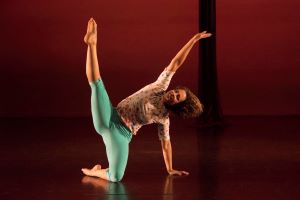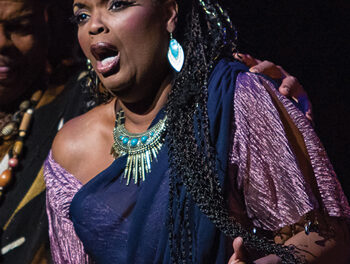Duke Performances, under the direction of Aaron Greenwald, presents 50 to 60 concerts, theater events, dance productions, and other live art performances every year, and nearly every one is worth seeing. Some of the most successful and most adventurous offerings have been commissioned collaborations. This year, for example, we have witnessed a new multi-movement work by eminent jazz composer Billy Childs commemorating 50 years of black students at Duke University; and sideman Nick Sanborne was given his own night to play on stage with his musical friends. Past collaborators have brought together similar artists, have resulted in recordings, and have introduced audiences to startling new musical productions.
In the classical music world, “supergroups” are common enough. We all enjoy the recordings of Yo-Yo Ma, Isaac Stern, Emanuel Ax, Jaime Laredo, and other big names playing together; we take for granted the prestige of groups like The Three Tenors or pieces like Mendelssohn’s Octet which is usually performed by combining two esteemed string quartets. This phenomenon occurs in the popular music world, of course, but with frequently paltry results. Groups like the Traveling Wilburys (counting Bob Dylan, George Harrison, and Roy Orbison among its members) are often an exception; but combining popular artists of such high caliber seems more often to result in weak songwriting and clashes of ego. Such was not the case in this Wild Edges presentation, for the result yielded true collaboration; though Henry may have penned most of the songs, each artist contributed to the music.
“Wild Edges: A Musical Collaboration,” is a notch higher on the doorpost of Duke Performances’ artistic commissions. Greenwald noted in his introduction that the music bears “quality and dignity,” attributes appropriate to as venerable a space as the Hayti Heritage Center in Durham. If Greenwald was the night’s Diaghilev, Joe Henry was Stravinsky, who claimed that the show was something “like a play.” The songs in the program, all original compositions, were in effect subtitled “inspired by” songs from the American canon, expanded by Henry beyond the musical theater confines of Cole Porter and George Gershwin to include Bob Dylan, Hank Williams, Blind Willie McTell, Duke Ellington, and other venerable American composers. Though the songs may have received inspiration from forbears, Henry noted they still had to “fight it out on the streets if they want to survive;” these songs weren’t notable for their genesis, but for their adulthood.
From the program’s opening, “Los Lunas,” (inspired by Johnny Cash’s macabre “Delia’s Gone“), the magic of the musical combination was obvious. Bolstered by Jay Bellerose on drums, Jen Condos on bass, and Levon Henry (son of Joe Henry), reeds, the music came alive, evoking at once nostalgia for a musical America that never really existed, and delighting in the sound of contemporary, original music. Every aspect of orchestration was perfect: the choice of singers, the varying instrumentation, the variety of styles, tempos, keys, modes. “Los Lunas,” for example, featured three guitars plus pedal steel, plus bass, drums, reeds, and mandolin/piano. I don’t think that exact combination occurred during the rest of the night, making for a sort of folksy Pierrot Lunaire grouping.
The inspiring song was not always immediately evident in the new song; at times the inspiration seemed from a simple chord progression or an oblique lyrical reference. For example, “Making Pictures,” inspired by Paul Simon’s “Kodachrome,” mused on the relationship of photographs, history, and solipsistic reality that Simon intimates through his appeal to Kodak’s color film. Joe Henry took this as his starting point, reflecting in an apostrophic dialog, “You take a photograph, I’m making pictures in my head.”
The musical worlds the songs evoked were all slightly different; some opened with spiritual-like piano parts, others with a washed-out surf guitar; some featured Levon Henry prominently in a tenor sax solo and some, the more plaintive sounds of dobro and acoustic guitar. The lyrics were haunting, filled with visceral images. In the song “Glorious Dead,” inspired by a London trip, Henry sang, “Once I held my fingers to your lips/ to me they were a Bible written in Braille.” The song “Betting on the Muse,” inspired by a Bukowski poem, asked, “Are they songs or are they prayers?”
That question drove the entire evening. The musical highlights included the Milk Carton Kids‘ Kenneth Pattengale singing “I Only See The Moon” with pared-down instrumentation that was at once sacred and longing, ghostly and material; and the set of three encores, one from each artist: the Milk Carton Kids’ “Michigan,” Joe Henry’s “Reverie,” and Over The Rhine‘s “All My Favorite People.” Throughout the night, Jay Bellerose’s antique drum sounds filled out the lush sounds, especially as he played with mallets or added other auxiliary percussion. Plaudits to Aaron Greenwald for organizing these series and for taking musical risks with artists. This concert and the repeat are being recorded for a live album release, and we can only hope that the endeavor will inspire future collaborations.
This program will be repeated April 12. It is already sold out, but it might be worth calling to see if any returns are available. For details, see the sidebar.













